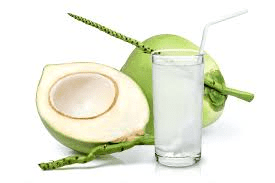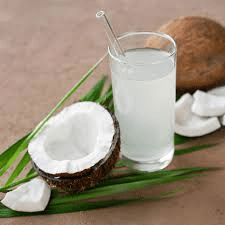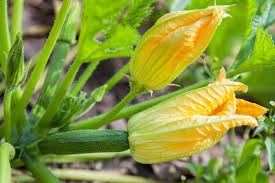The Coconut Water: Economic Importance, Uses, and By-Products
Coconut water is the clear liquid that can be found inside young green coconuts. It is a popular thirst-quencher and is known for its refreshing taste. Scientifically, coconut water is a type of nut juice and is composed of 94% water and very little fat. It is a rich source of potassium, magnesium, and calcium, which are essential for maintaining good health.
Moreover, coconut water has several health benefits, making it a popular drink among health enthusiasts. It is low in calories, contains no cholesterol, and is a good source of antioxidants. Additionally, it has natural electrolytes, such as sodium, potassium, and magnesium, which make it an excellent drink for athletes and those who engage in physical activities.
Coconut water has been used as a traditional remedy for various ailments, such as dehydration, kidney stones, and digestive issues. It has been found to have antibacterial, antifungal, and antiviral properties, making it useful in treating infections.
Coconut water is a refreshing and healthy drink that is packed with essential nutrients. It has several health benefits and can be used as a traditional remedy for various ailments.
The Economic Importance and Uses of Coconut Water

1. Beverage Industry: Coconut water is a popular beverage consumed worldwide for its refreshing taste and nutritional benefits. It is sold as a natural, isotonic drink that rehydrates the body and replenishes electrolytes lost during physical activity.
2. Health and Wellness: Coconut water is marketed as a health and wellness product due to its natural hydration properties and potential health benefits. It is promoted as a low-calorie, cholesterol-free alternative to sugary drinks and sports beverages.
3. Sports and Fitness: Coconut water is favored by athletes and fitness enthusiasts as a natural source of hydration and energy. It contains electrolytes such as potassium, sodium, and magnesium, which help maintain fluid balance and support muscle function during exercise.
4. Culinary Applications: Coconut water is used in culinary applications to add flavor and moisture to dishes such as smoothies, cocktails, marinades, sauces, and desserts. It lends a subtle sweetness and tropical aroma to recipes.
5. Food Processing: Coconut water is used in the food processing industry as a natural ingredient in products such as fruit juices, flavored beverages, dairy alternatives, and frozen desserts. It enhances the taste and nutritional profile of food and beverage products.
6. Cosmetic Industry: Coconut water is utilized in the cosmetic industry for its hydrating, soothing, and antioxidant properties. It is incorporated into skincare products such as moisturizers, toners, facial mists, and masks to nourish and revitalize the skin.
7. Nutritional Supplements: Coconut water is used as a base ingredient in nutritional supplements such as vitamin waters, energy drinks, and electrolyte powders. It provides essential nutrients and hydration support for individuals seeking active lifestyles.
8. Pharmaceutical Applications: Coconut water is explored for its potential pharmaceutical applications, including as a carrier for drug delivery systems, a source of natural antioxidants, and a component of oral rehydration solutions for treating dehydration.
9. Agriculture: Coconut water is used in agriculture as a natural fertilizer and plant growth enhancer. It contains nutrients such as cytokinins, auxins, and gibberellins that promote root development, flowering, and fruiting in crops.
10. Tourism Industry: Coconut water is a popular tropical beverage enjoyed by tourists visiting coconut-producing regions. It is served fresh from coconuts at beach resorts, hotels, and street vendors as a quintessential taste of the tropics.
11. Export Trade: Coconut water production and export contribute to the economy of coconut-producing countries, generating revenue and employment opportunities for local communities. Packaged coconut water is exported to international markets as a premium beverage product.
12. Retail Market: Coconut water is sold in supermarkets, convenience stores, health food stores, and online retailers as a bottled or packaged beverage. It is available in various flavors, formulations, and packaging sizes to cater to consumer preferences.
13. Beauty Spas and Wellness Centers: Coconut water is used in beauty spas and wellness centers for hydrating facials, body treatments, and relaxation rituals. It is incorporated into spa menus and skincare services for its refreshing and rejuvenating properties.
14. Research and Development: Coconut water is the subject of ongoing research and development in fields such as food science, nutrition, agriculture, and biotechnology. Studies explore its nutritional composition, health benefits, and potential applications in various industries.
15. Cultural Traditions: Coconut water holds cultural significance in many tropical societies, where it is used in rituals, ceremonies, and cultural traditions. It symbolizes purity, vitality, and hospitality in cultural practices and celebrations.
16. Eco-tourism Activities: Coconut water is a featured attraction in eco-tourism activities such as coconut farm tours, culinary experiences, and cultural immersion programs. Tourists learn about coconut cultivation, harvesting, and processing while enjoying fresh coconut water straight from the source.
17. Community Development: Coconut water production and processing contribute to community development initiatives in coconut-growing regions, supporting infrastructure development, education, healthcare, and environmental conservation efforts.
Read Also: How to Control Feeding Struggle among Fishes in the same Pond
The Products and By-products That Can Be Derived From Coconut Water

1. Packaged Coconut Water: Fresh coconut water is packaged in bottles, cans, tetra packs, or pouches for retail sale and distribution. Packaged coconut water is pasteurized or treated to preserve its freshness and extend shelf life.
2. Flavored Coconut Water: Coconut water is flavored with natural fruit juices, extracts, or essences to create flavored coconut water beverages. Flavors such as pineapple, mango, passion fruit, and lime enhance the taste and appeal of coconut water.
3. Coconut Water Concentrate: Coconut water is concentrated by removing water content through evaporation or filtration processes. Coconut water concentrate is used as a base ingredient in beverage production and food processing applications.
4. Coconut Water Powder: Coconut water is dehydrated into powder form through spray drying or freeze drying techniques. Coconut water powder is reconstituted with water to make coconut water beverages or used as a flavoring agent in food products.
5. Coconut Water Ice Cubes: Coconut water is frozen into ice cube trays or molds to make coconut water ice cubes. Coconut water ice cubes can be added to drinks, smoothies, cocktails, or used as a refreshing snack on hot days.
6. Coconut Water Jelly: Coconut water is mixed with gelatin or agar-agar to make coconut water jelly desserts. Coconut water jelly is served chilled and enjoyed as a light and refreshing dessert or snack.
7. Coconut Water Sorbet: Coconut water is churned into sorbet using an ice cream maker or frozen dessert machine. Coconut water sorbet is dairy-free, vegan-friendly, and has a light and refreshing texture.
8. Coconut Water Popsicles: Coconut water is poured into popsicle molds and frozen to make coconut water popsicles. Coconut water popsicles are a healthy and hydrating treat for both children and adults.
9. Coconut Water Vinegar: Coconut water is fermented with acetic acid bacteria to produce coconut water vinegar. Coconut water vinegar is used in cooking, salad dressings, marinades, and pickling for its mild acidity and fruity flavor.
10. Coconut Water Skincare Products: Coconut water is used in skincare products such as facial mists, toners, masks, and moisturizers. Coconut water skincare products hydrate, refresh, and revitalize the skin, leaving it soft, supple, and glowing.
11. Coconut Water Hair Products: Coconut water is incorporated into hair care products such as shampoos, conditioners, and hair masks. Coconut water hair products nourish and hydrate the hair, leaving it smooth, shiny, and manageable.
12. Coconut Water Cosmetics: Coconut water is used in cosmetics such as foundations, BB creams, and tinted moisturizers for its hydrating and skin-loving properties. Coconut water cosmetics provide lightweight coverage and a natural, dewy finish.
13. Coconut Water Soap: Coconut water is blended with oils, fats, and lye to make coconut water soap. Coconut water soap cleanses and moisturizes the skin, leaving it feeling soft, smooth, and refreshed.
14. Coconut Water Candles: Coconut water is used as a fragrance component in scented candles for its fresh, tropical aroma. Coconut water candles create a calming and inviting atmosphere, filling the air with the scent of coconut paradise.
15. Coconut Water Bath Bombs: Coconut water is incorporated into bath bomb formulations for its hydrating and skin-conditioning properties. Coconut water bath bombs fizz and dissolve in bathwater, releasing moisturizing ingredients and aromatic scents.
16. Coconut Water Facial Sprays: Coconut water is bottled as a facial spray or mist for refreshing and hydrating the skin throughout the day. Coconut water facial sprays provide an instant boost of moisture and vitality for all skin types.
17. Coconut Water Lip Balms: Coconut water is infused into lip balm formulations for its moisturizing and nourishing properties. Coconut water lip balms hydrate and protect lips from dryness, leaving them soft, supple, and kissable.
Read Also: The Curry Leaves: Economic Importance, Uses, and By-Products
Frequently Asked Questions (FAQs) About Coconut Water

1. What is coconut water?
Coconut water is the clear, liquid found inside young, green coconuts. It is naturally hydrating and contains electrolytes such as potassium, sodium, and magnesium.
2. How is coconut water harvested?
Coconut water is harvested by opening the top of young, green coconuts with a machete or knife. The coconut water is then collected from the center of the coconut.
3. What are the health benefits of coconut water?
Coconut water is hydrating, low in calories, and rich in electrolytes, vitamins, and minerals. It may support hydration, electrolyte balance, and overall health and wellness.
4. Is coconut water the same as coconut milk?
No, coconut water and coconut milk are different products. Coconut water is the clear liquid found inside coconuts, while coconut milk is made from grated coconut flesh blended with water.
5. Can coconut water be used as a sports drink?
Yes, coconut water is often used as a natural sports drink due to its electrolyte content, which can help rehydrate and replenish the body during physical activity.
6. Is coconut water safe to drink straight from the coconut?
Yes, coconut water is safe to drink straight from the coconut as long as the coconut is fresh and has not been contaminated. It is a common practice in tropical regions.
7. Does coconut water have any side effects?
Coconut water is generally safe for most people when consumed in moderation. However, excessive consumption may lead to bloating, stomach upset, or electrolyte imbalances.
8. Can coconut water be stored?
Yes, coconut water can be stored in the refrigerator for a few days after opening. Unopened coconut water can be stored at room temperature or in the refrigerator for longer shelf life.
9. Is coconut water suitable for people with nut allergies?
Despite its name, coconut is not a nut but a fruit. Coconut water is typically safe for individuals with nut allergies, but those with severe allergies should consult a healthcare provider.
10. Are there any environmental concerns related to coconut water production?
Coconut water production may have environmental impacts such as deforestation, habitat loss, and water usage. Sustainable harvesting practices and responsible sourcing can help mitigate these concerns.
Read Also: Potato Farming Guide – 7 Tips to Grow Sacks Full of Potatoes









